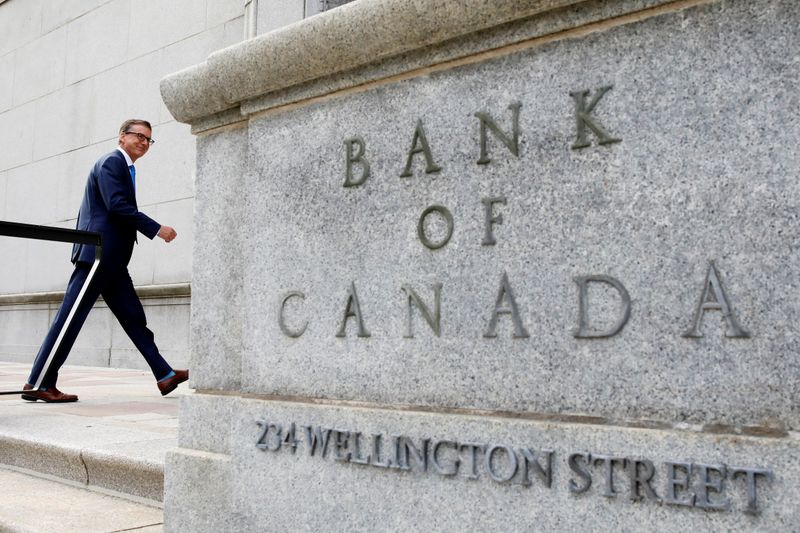Stock market today: Nasdaq closes above 23,000 for first time as tech rebounds
Investing.com -- The Bank of Canada kept its benchmark interest rate unchanged at 2.75% on Wednesday, with Governor Tiff Macklem highlighting persistent uncertainty around U.S. trade policy and signs of underlying inflation pressure. Speaking in Ottawa, Macklem said the central bank remains cautious as it navigates a fragile economic landscape shaped by tariffs, volatile global growth, and evolving inflation dynamics.
“Today, Governing Council held the policy interest rate at 2.75%,” Macklem said. “This decision reflects three main considerations: uncertainty about US tariffs on Canada, resilience in Canada’s economy, and underlying inflation pressures.” The bank and deposit rates also remained unchanged, sitting at 3% and 2.70%, respectively.
The central bank opted once again not to present a conventional Monetary Policy Report forecast, instead offering scenario-based guidance to reflect a murky policy environment marked by tariff negotiations between Washington and its trading partners. The three scenarios include a baseline assuming existing tariffs remain in place, along with alternatives where trade barriers either escalate or recede.
Though U.S. tariffs have so far had a smaller impact than initially feared, the Bank warned of heightened risks that continue to weigh on sentiment and forward-looking investment. “Growth in spending by Canadian businesses and households is being restrained by uncertainty,” Macklem noted, with data suggesting “excess supply in the economy has increased since January.”
Canada’s economy showed strength early in the year as businesses accelerated exports before tariffs took effect, but output is now correcting. The central bank expects modest GDP growth of 1% in the second half of 2025, assuming trade flows stabilize and households begin to spend more steadily.
Inflation remains near the Bank’s 2% target, but with signs that core price pressures persist. “A range of indicators suggest underlying inflation has increased… to around 2½% more recently,” Macklem said, pointing to elevated goods inflation and lingering pressure from shelter costs, even as expectations among businesses ease somewhat.
Macklem emphasized that the Bank is ready to adjust course if disinflationary pressures outweigh upward cost drivers. “If a weakening economy puts further downward pressure on inflation and the upward price pressures from the trade disruptions are contained, there may be a need for a reduction in the policy interest rate,” he said.
For now, policymakers say they are proceeding cautiously as they monitor how tariffs evolve and how those changes ripple through employment, investment and household behavior. “We are focused on ensuring that Canadians continue to have confidence in price stability through this period of global upheaval,” Macklem concluded.
